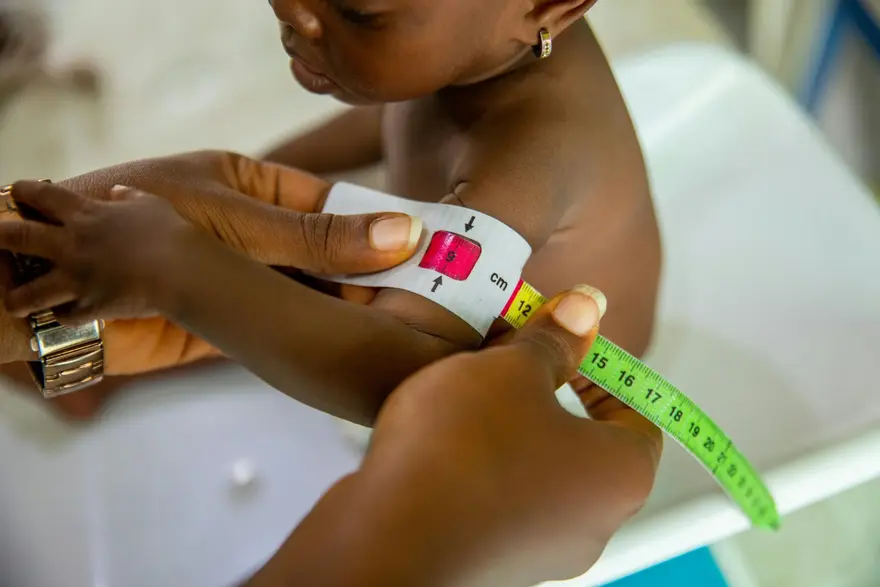Preventive Healthcare
Uterine Cancer (Endometrial Cancer): Symptoms, Causes & Treatment
573 Views
0

When it comes to maintaining health, knowledge is power. One such subject demanding our attention is uterine cancer. By identifying the symptoms, understanding its causes, and treatment choices can help you assist those affected or those who want to prevent this condition. This guide aims to clarify these topics to help improve health knowledge and overall well-being.
What is uterine cancer?
Uterine cancer refers to cancers that develop in the uterus, primarily divided into two types: endometrial cancer and uterine sarcoma. Endometrial cancer starts in the inner lining of the uterus and is the most common type, exhibiting symptoms like abnormal bleeding.
Uterine sarcoma begins in the muscle wall of the uterus and is less common but can be more aggressive. Identifying these types are essential for an early detection and effective treatment, improving overall health outcomes.
Are endometrial cancer and uterine cancer the same?
While people often use “endometrial cancer” and “uterine cancer” interchangeably, it’s essential to clarify that they are not exactly the same. Endometrial cancer accounts for about 95% of all uterine cancers making it far more common than uterine sarcomas.
What does the uterus do?
The uterus plays a crucial role in a woman's reproductive system by providing a nurturing environment for a developing fetus during pregnancy.
What does the endometrium do?
The endometrium is sensitive to hormonal changes during the menstrual cycle. Estrogen thickens this lining, preparing for possible pregnancy. If pregnancy does not take place, progesterone levels reduce, leading to the shedding of the uterine lining, resulting in a menstrual period.
How common is uterine cancer?
Uterine cancer, especially endometrial cancer, is one of the most prevalent gynecological cancers worldwide. Its incidence is rising rapidly, with an estimated 50% increase in cases expected by 2040.
What are the symptoms of uterine cancer?
Symptoms of uterine cancer can be misleading, as they often resemble other conditions.
Common symptoms include:
- Vaginal bleeding between periods or after menopause
- Lower abdominal pain or cramping
- Thin white or clear vaginal discharge in postmenopausal women
- Heavy or prolonged vaginal bleeding in women over 40
It's important to report any unusual symptoms to your healthcare provider for proper diagnosis and treatment.
What causes uterine cancer?
The exact cause of uterine cancer remains unknown. However, it is believed that changes in cells within the endometrium may lead to their uncontrolled growth and form a tumour.
What are risk factors for uterine cancer?
Various factors increase the risk of endometrial cancer:
- Age, Lifestyle, and Family History: Older age, obesity, or having a family history of conditions like Lynch Syndrome can increase the risk considerably
- Other Conditions: Conditions that increase estrogen levels without a proportionate increase in progesterone, such as obesity, diabetes, and polycystic ovary syndrome, can also elevate risk.
- Menstrual and Reproductive History: Women who started menstruating before age 12 or began menopause later have more exposure to estrogen which increases risk.
- Previous Treatments for Other Conditions: Taking hormone therapy may elevate the risk of endometrial cancer.
These risk factors don’t guarantee the development of uterine cancer, but understanding them can help with early detection and management.
What are the complications of endometrial cancer?
Endometrial cancer, or uterine cancer, can result can potentially lead to life-threatening complications if it is not diagnosed early or managed effectively.
Some complications may include:
- Anaemia: This condition is marked by a low number of red blood cells, which can occur if uterine cancer leads to heavy menstrual bleeding
- Uterine Perforation: This refers to a hole in the uterus that can occur during he process of dilation and curettage (D&C) or an endometrial biopsy, especially in women who are menopausal or have recently been pregnant
- Treatment Complications: Surgery, radiation, and chemotherapy can cause fatigue, changes in bowel and bladder function, lymphoedema, and vaginal vault prolapse
- Menopause: If you undergo ovary removal or certain treatments for endometrial cancer, it can induce sudden menopause
- Infertility: Surgery to remove the uterus or pelvic radiation can cause infertility
- Cancer Metastasis: This is when cancer cells spread from the uterus to other areas of the body
- Ineffective Treatment Response: Sometimes, your body may not respond well to treatment, leading to further complications
How is uterine cancer diagnosed?
If you observe any unusual symptoms or potential signs of uterine cancer, it’s crucial to consult your healthcare provider. After discussing your symptoms, risk factors, and family history, they may suggest various tests to help with diagnosis.
- Blood Tests: A CA-125 assay test measures the level of CA-125 protein in the blood which can be indicative of uterine cancer
- Imaging Tests: CT scans and MRI scans can reveal detailed images of your uterus to identify any abnormalities
- Transvaginal Ultrasound: A special probe is inserted into the vagina to capture the images of the uterus
- Endometrial Biopsy: A thin, flexible tube is passed through the cervix and into the uterus to remove a small amount of the endometrium for testing
- Hysteroscopy: A thin tube with light and a camera is inserted through the vagina and cervix to reach the uterus for detailed visualisation
- Dilation and Curettage (D&C): This procedure is undertaken in an operating room to remove uterine tissue for further testing
What tests will we need to diagnose uterine cancer?
The diagnostic process includes several tests like blood tests, imaging tests like CT and MRI scans, transvaginal ultrasound, endometrial biopsy, hysteroscopy, and dilation and curettage (D&C). The cells collected from are then analysed in a lab by a pathologist to confirm the presence of cancer.
What else does an endometrial cancer diagnosis show?
Once endometrial cancer is diagnosed, it's also crucial for your care team to determine its type, as this helps in developing the most effective treatment plan.
There are two main types:
- Type 1 endometrial cancers are less aggressive and don't spread quickly
- Type 2 endometrial cancers exhibit more aggressive behaviour, often spreading beyond the uterus necessitating stronger treatment
Additionally, determining the stage of cancer is important for prognosis:
- Stage I - Cancer hasn't spread beyond the uterus
- Stage II - Cancer has spread to the cervix
- Stage III - Cancer has spread to the vagina, ovaries or lymph nodes
- Stage IV - Cancer has metastasised beyond nearby organs
How is uterine cancer treated?
The treatment for uterine cancer varies based on the type of cancer and the patient's overall health. Common treatment options include:
- Surgery: A hysterectomy to remove the uterus is a common surgical procedure
- Chemotherapy: Powerful drugs are used to destroy cancer cells
- Radiation Therapy: High-energy radiation is targeted at cancer cells to destroy them
- Hormone Therapy: Hormones are used or blocked to treat cancer
- Immunotherapy: Enhances your immune system's ability to fight cancer
- Targeted Therapy: Medications target specific cancer cells, preventing them from multiplying
What can I expect after uterine surgery?
Uterine cancer surgery can cause side effects like:
- Infertility which means you can't get pregnant
- Menopause (if you were premenopausal and ovaries were removed), along with symptoms like vaginal dryness and night sweats
Can uterine cancer be prevented?
While it's impossible to completely prevent uterine cancer, certain lifestyle changes can help reduce your risk:
- Maintaining a Healthy Weight
- Being Physically Active
- Using Hormonal Contraceptives
- Managing Diabetes
- Seeking Treatment for Abnormal Bleeding
- Talking to Your Doctor
- Considering Your Family History
- Staying Up to Date on Screenings
What’s the survival rate for people with uterine cancer?
The survival rate for uterine cancer mainly depends on the stage at which it is diagnosed. The five-year survival rate is approximately 81%. However, if it is caught early and remains confined to the uterus, the survival rate can be as high as 95%
Is there a cure for uterine cancer?
While there is no guaranteed cure, uterine cancer treatment can be very effective if it is detected early and hasn't spread beyond the uterus. Surgical removal of the uterus may lead to a potential cure.
Conclusion
Understanding uterine cancer, its symptoms, causes, and treatment options, is crucial for early detection and effective management. While this information offers a complete overview, it's crucial to seek personalized medical advice from your healthcare provider.
You should consider regular health checks for early detection and managing your health. Metropolis Healthcare offers at-home sample collection and advanced testing services, with quick online access to your test reports through email or the Metropolis TruHealth app.
Remember, prioritising your health is an investment for a healthier tomorrow. So, take the first step towards empowering yourself with knowledge and proactive healthcare today!























 WhatsApp
WhatsApp